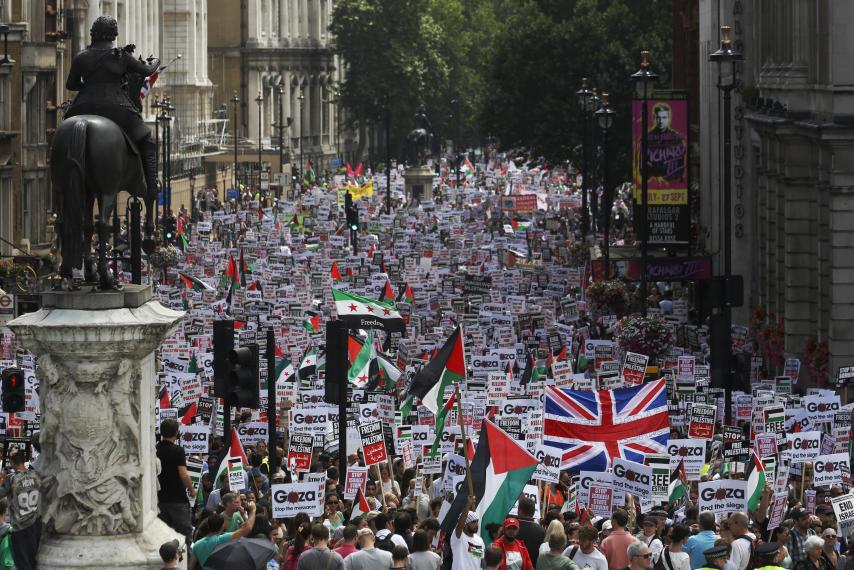Local pro-Palestine activists are calling on South Africans to protest against the UK governments decision to ban the public sector from boycotting Israeli products. Public-sector organisations in Britain have been banned from boycotting Israeli suppliers under new government rules, and violators could face severe penalties.
The government of the UK has released Procurement Policy Note 01/16, which speaks to the UK’s compliance with international obligations. It states that boycotts in public procurement are inappropriate, unless formal legal sanctions, embargoes and restrictions have been put in place by the UK government
Israeli prime minister Benjamin Netanyahu welcomed the new rules as a boost for his government’s battle against a Palestinian-led international boycott campaign. Palestinians criticised the decision, saying it would reinforce Israel’s occupation of territories.
Palestinian Solidarity Campaign (PSC) chairperson, Martin Jansen, explained that a number of local councils have passed their own local legislation in support of the boycott divestment and sanctions movement.
The BDS movement was established in response to Israeli policy toward Palestinians, in the same way that the anti-Apartheid movement lobbied governments’ to boycott the Apartheid state. The BDS movement has in past six years gained much momentum.
In recent years numerous governments have examined the legality of the BDS movement within their territories relative to their relations with the State of Israel. The Canadian parliament, as a result, passed a motion that was adopted by the majority. The motion stated that:
“Given that Canada and Israel share a long history and friendship, as well as economic and diplomatic relations, the house rejects the Boycott, Divestment and Sanctions – BDS- movement, which promotes the demonization and the delegitimization of the state of Israel, and call upon the government to prevent any and all attempts by Canadian organizations, groups, or individuals who promote the BDS Movement, both here and abroad.”
Jansen asserts that this motion reflects western sentiments toward the Israeli/Palestinian conflict.
“So-called liberal, democratic states go out of their way, including armed invasions, to ostensibly spread democracy, yet in their own country they are doing such anti-democratic moves.”
These actions, Jansen asserts does not reflect democracy.
The ban on BDS essentially reflects the affect that the movement has had on relations between Israel and its allies.
The South African government, Jansen believes, will not likely be adopting similar legislation.
The BDS movement, as an international organisation, is predominantly situated in wealthy countries, such as Britain, where the economies are tightly linked to the Israeli economy. It is therefore, expected that the banning of BDS in such countries is a serious matter, and will have a direct impact on the overall function of the organization.
BDS, internationally, has enjoyed great success. This is evident within the United States, where a growing number of Christians, specifically the Methodist church, have adopted BDS. These individuals have removed their pension funds from Israeli companies.
The PSC will be opposing the ban internationally. He further urges the South African Government to raise this issue with; the states that are disallowing the actions of the movement, the United Nations, and to oppose it internationally.
The PSC is calling on Capetonians to show their opposition of the BDS ban at the protest action, which will take place at the British Consulate in Cape Town, at 13:30 on Friday, 18 March 2016.
VOC (Thakira Desai)






 WhatsApp us
WhatsApp us 

